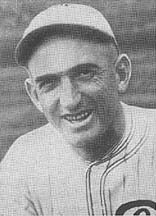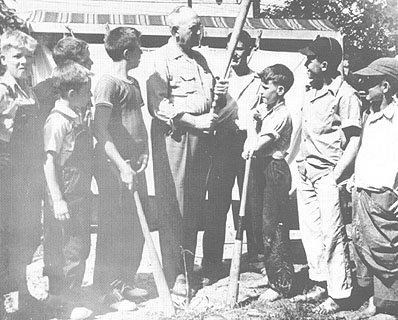Bird Dogs...
Quail...
Resources...
Library...
Dog Training Collars
Tri-Tronics
SportDog
Dogtra
Innotek
Shoeless Joe
This articles appears in the Mar-Apr 2001 issue of Quail Unlimited Magazine
 |
| Shoeless Joe Jackson |
The other evening I watched a movie called Field of Dreams. I've seen it perhaps a dozen times over the years and it remains one of a handful of my favorites. Like a cherished book, a favorite film reveals something new each time you watch it; nuances surface that were initially obscured by efforts simply to keep up with the plot. And so this time as I watched the fantasy unfold, I absorbed subtle clues to just how much the game of baseball has changed since its early days.
For those of you unfamiliar with the movie, the story centers on a modern-day farmer named Ray Kinsella and the ghost of Shoeless Joe Jackson, a baseball star of the early 1900s. At the risk of gross understatement, baseball has changed quite a bit since Joe's day. Lights now illuminate the ivy at the last bastion of the day game, Wrigley Field. Ebbets Field, home of the Brooklyn Dodgers, is now an apartment complex and Chicago's Comiskey Park was torn down and replaced with a parking lot for the "improved" version across the street. Camcorders and video replay are used to analyze a batter's swing and a pitcher's delivery. Physical conditioning targets specific muscle groups to enhance a player's performance. Babe Ruth never heard of such a thing. Ty Cobb was known to target specific muscle groups, but they were found mainly on other players' legs. The list goes on to include skyboxes, cable TV broadcasts, product endorsements and players' unions. But what does all of this have to do with quail?
On the surface, very little. But sparked by a bird dog climbing into bed with me after the movie ended, I realized that baseball had pulled quail hunting down that same road of change. In the old days, dogs were located in the field by the sweet tones of a bell slung from their collars. More and more, those bells are being replaced with beepers that sound like a dump truck in reverse. Around the time that announcers and coaches started using video to dissect a player's swing, biologists began attaching radio transmitters to quail to track feeding habits, mating schedules, and mortality. In the 1920s, who would have thought of attaching an electronic transmitter to a quail? That would have been as ludicrous as sending a man to the moon. Today, biologists analyze data with computers to determine the efficacy of food plots, burning, discing, and other types of land management. Seed manufacturers constantly experiment with chemistry and genetics to improve germination and crop yield. Catalogs offer bottled bird scent along with shooting glasses in a dozen shades of lens tint.
In a society of intelligent individuals, progress is inevitable. It is human nature to improve upon the existing, to find a faster route, a stronger material, a less expensive process. But quail hunting has been spoiled to a certain degree by the essential evils of progress. Sadly, our society has progressed to the point that the knee-jerk reaction to any crumb of misfortune is to hire a lawyer. This shameful fact has infiltrated nearly every aspect of our lives, including a pastime as benign as quail hunting, and has resulted in farmers who are now fearful of allowing strangers to hunt their land. Shotgun manufacturers are being sued by the masses as legislators slowly pick away at the right to own one of the tools of our trade.
A few quail hunters remember the day when a knock on a farmer's door resulted in a thirty-covey day. Hunting leases were as unheard of as game preserves and you drove minutes to a prime hunting spot instead of hours or days. Side-by-sides were the weapon of choice and a limit of wild quail was a very real possibility. Many who carry these memories can also recall a day when cheap tickets to a ballpark were the rule, and listening to a game on the radio was not just the lone option but a whole lot of fun. Cheap tickets to a major league game will only get you Bob Uecker seats now, and quail are often placed in a field hours before a hunt. These are not inherently bad things- lighted and larger stadiums and put-and-take preserves allow more people to enjoy each sport, people who might otherwise never have the chance to experience them. But whenever the old is invaded by the new, even when done for good reason, there is still a sense that something is slipping away.
Fortunately for both sports, you can still enjoy them as they were in their wonder years. Single-A teams offer dugout tickets at single-digit prices. There are farmers who will trade a day's hunt for a promise to pick up empty shells. You may still hang a bell around your dog's neck and shoot with a side-by-side. Thanks to conservation-minded individuals and organizations like QU, there are still wild quail and there are even places where a limit is a very real possibility.
 |
| Joe Jackson coaching kids around 1944 |
The essence of a sport lies in an appreciation for it at its most basic level. A man who prefers a bell to a beeper or the uncertainty of a wild bird hunt to the convenience of a preserve is not a purist or a snob, but rather a person with a deep passion for his sport. In Field of Dreams, Ray Kinsella built a ball field in the middle of his Iowa corn crop so that Shoeless Joe Jackson, a man who was unjustly banned from baseball decades ago, could play once again. Joe yearned to play not because a good agent could add two or three zeros to the $6000 he made in 1919, or because of the plush new parks with air-conditioned clubhouses, or the lucrative endorsement deals, or free agency or better gloves or jet travel or any other modern facet. He wanted to play again because he loved the game. The film is fiction, but in reality, after Shoeless Joe was banned from major league baseball in 1920, he spent the remainder of his days drifting through various minor leagues and coaching kids' teams. He was the third best hitter the majors ever saw, carrying a .356 lifetime average, and he finished his days playing for food money or for nothing at all. There is no better paradigm for love of a sport.
James Earl Jones delivers a soliloquy near the end of the film that speaks volumes:
The one constant through all the years has been baseball. As America has rolled by like an army of steamrollers - it's been erased like a blackboard, rebuilt and erased again - baseball has marked the time. This field, this game is a part of our past. It reminds us of all that once was good, and that could be againReplace the word baseball with the words quail hunting and the speech doesn't change. Each has grown up over the years but each remains a kid at heart. There are few things left in this virtual-hyper-digital-turbo world that can be so simple and pure. Rainouts, rust-colored dirt, the smell of broken-in leather, windy days with a chill on your breath and dead-calm days when the air sticks to your skin, bugs stirred from the grass by your shoes. A ball, a bat, and a glove. A dog, a gun, and a pocketful of shells. In a world fraught with the problems of progress, an afternoon afield reminds you of what once was good, and what could be again. A field of dreams could be surrounded by bleachers or by pine trees.
P.S. If you run into Bud Selig, tell him that Shoeless Joe's reinstatement is long overdue.
 Windows users press "CTRL+P" to print this page
Windows users press "CTRL+P" to print this page  Mac users press "Apple/Loop+P" to print this page
Mac users press "Apple/Loop+P" to print this page